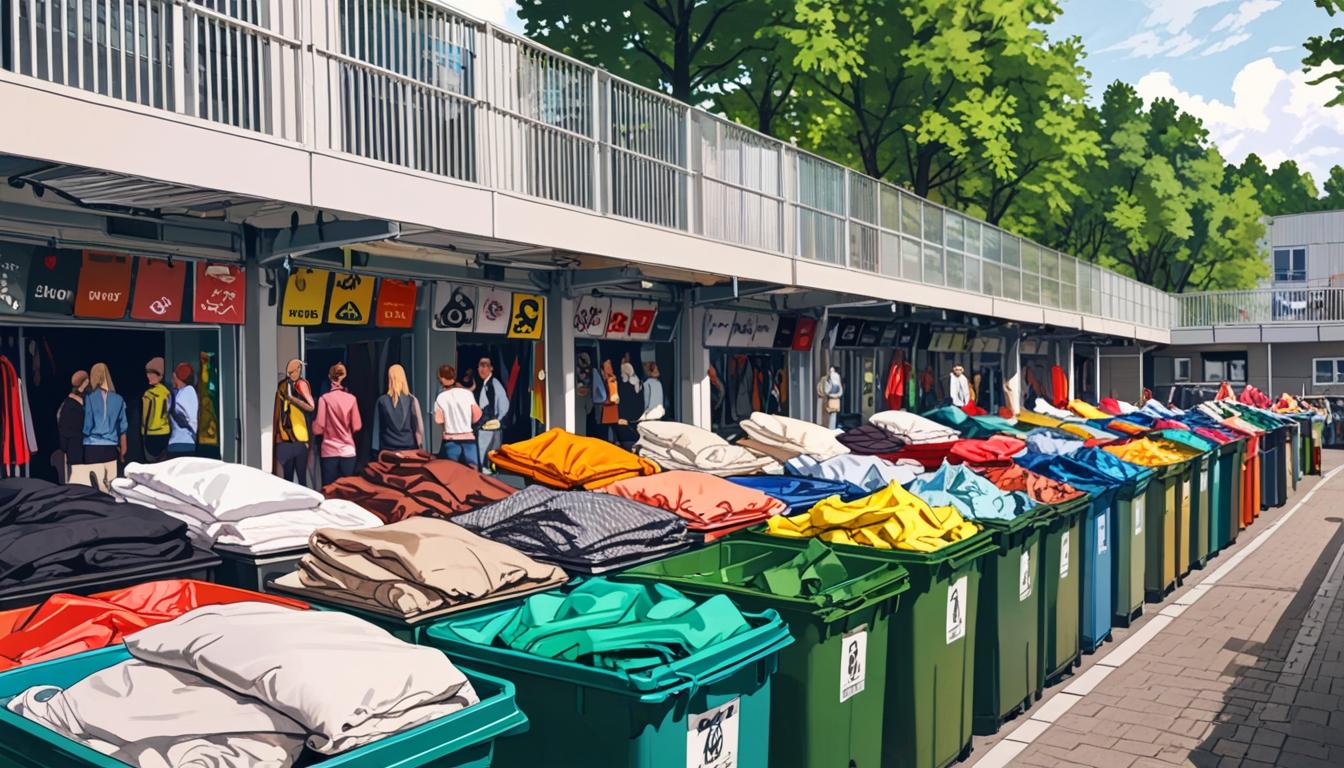As Borås cities prepare for a new textile collection initiative, concerns about contamination arise amidst an influx of textiles at recycling centers.
In Borås, Sweden, plans are moving forward to enhance textile collection services as part of a new municipal initiative that began at the start of the year. According to Göran Glans from Borås Energy and Environment, the city’s recycling centers have experienced an overwhelming influx of textiles, creating a pressing demand for relief measures. “It is in demand. Our centers have been completely flooded with textiles; this will provide relief and make it more manageable,” Glans stated.
The announcement confirms that Myrorna and Björkåfrihet have been awarded the responsibility of handling textile collection in Borås. While the collection of textiles aligns with a broader mandate for Swedish municipalities to manage textile waste, the rollout in Borås faced delays due to an appeal lodged by Human Bridge, one of the competing organizations that did not win the procurement process. The appeal challenged the procurement criteria, which focused on reuse and recycling within Europe, claiming it unfairly excluded them. However, the administrative court found the objection insufficient, ultimately allowing the original award decision to stand. “We are returning to the original plan, where Myrorna and Björkåfrihet divide the recycling centers and recycling stations in Borås according to the plan we have created together,” Glans explained.
As new containers are set to be introduced at the city’s 31 recycling stations, certain guidelines will govern what can be placed inside them. The legislation stipulates that all textiles, including single socks and damaged items, must be submitted. However, Glans highlighted a significant concern: “It becomes a problem if moldy and wet textiles are included in the collection, as it destroys much more.” Due to this risk, residents are advised to deposit contaminated items in designated containers located at the city’s five recycling centers to prevent issues of contamination in the general collection.
Although specific rollout dates for the new containers were not confirmed, Glans noted that the organizations involved have indicated they are prepared to begin implementation. “I spoke with them just this morning. Both said they are ready to start rolling out, so it could happen quite quickly,” he said. With anticipation surrounding the new containers, Glans is optimistic that the updated collection system will be operational within weeks, alleviating some of the strain currently faced by the existing recycling centers. The new containers will resemble those previously seen and will streamline textile collection by consolidating efforts under the awarded organizations.
Source: Noah Wire Services



